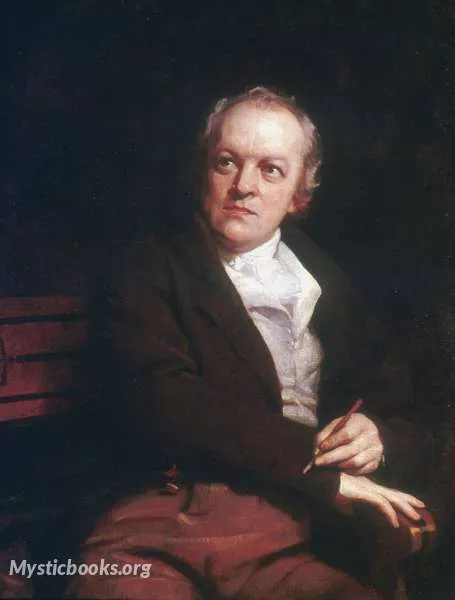
Timeline
Title
Country/Nationality
William Blake
William Blake (28 November 1757 – 12 August 1827) was an English poet, painter, and printmaker. Largely unrecognized during his lifetime, Blake is now considered a seminal figure in the history of the poetry and visual arts of the Romantic Age. What he called his prophetic works were said by 20th-century critic Northrop Frye to form "what is in proportion to its merits the least read body of poetry in the English language". His visual artistry led 21st-century critic Jonathan Jones to proclaim him "far and away the greatest artist Britain has ever produced". In 2002, Blake was placed at number 38 in the BBC's poll of the 100 Greatest Britons. While he lived in London his entire life, except for three years spent in Felpham, he produced a diverse and symbolically rich œuvre, which embraced the imagination as "the body of God" or "human existence itself".
Although Blake was considered mad by contemporaries for his idiosyncratic views, he is held in high regard by later critics for his expressiveness and creativity, and for the philosophical and mystical undercurrents within his work. His paintings and poetry have been characterized as part of the Romantic movement and as "Pre-Romantic". A committed Christian who was hostile to the Church of England (indeed, to almost all forms of organized religion), Blake was influenced by the ideals and ambitions of the French and American revolutions. Though later he rejected many of these political beliefs, he maintained an amiable relationship with the political activist Thomas Paine; he was also influenced by thinkers such as Emanuel Swedenborg. Despite these known influences, the singularity of Blake's work makes him difficult to classify. The 19th-century scholar William Michael Rossetti characterized him as a "glorious luminary", and "a man not forestalled by predecessors, nor to be classed with contemporaries, nor to be replaced by known or readily surmisable successors".
William Blake was born on 28 November 1757 at 28 Broad Street (now Broadwick St.) in Soho, London. He was the third of seven children, two of whom died in infancy. Blake's father, James, was a hosier. He attended school only long enough to learn reading and writing, leaving at the age of ten, and was otherwise educated at home by his mother Catherine Blake (née Wright).Even though the Blakes were English Dissenters, William was baptised on 11 December at St James's Church, Piccadilly, London. The Bible was an early and profound influence on Blake, and remained a source of inspiration throughout his life.
Blake's last years were spent at Fountain Court off the Strand (the property was demolished in the 1880s, when the Savoy Hotel was built). On the day of his death (12 August 1827), Blake worked relentlessly on his Dante series. Eventually, it is reported, he ceased working and turned to his wife, who was in tears by his bedside. Beholding her, Blake is said to have cried, "Stay Kate! Keep just as you are – I will draw your portrait – for you have ever been an angel to me." Having completed this portrait (now lost), Blake laid down his tools and began to sing hymns and verses. At six that evening, after promising his wife that he would be with her always, Blake died. Gilchrist reports that a female lodger in the house, present at his expiration, said, "I have been at the death, not of a man, but of a blessed angel."
George Richmond gives the following account of Blake's death in a letter to Samuel Palmer:
He died ... in a most glorious manner. He said He was going to that Country he had all His life wished to see & expressed Himself Happy, hoping for Salvation through Jesus Christ – Just before he died His Countenance became fair. His eyes Brighten'd and he burst out Singing of the things he saw in Heaven.
Books by William Blake
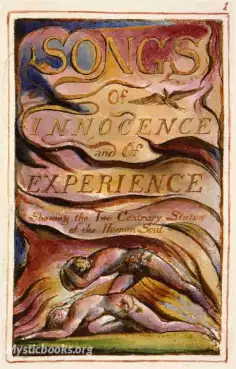
Songs of Innocence and Experience
“Tiger, tiger, burning bright/In the forests of the night/ What immortal hand or eye/ Could frame thy fearful symmetry?” These often quoted lines are part of The Tiger in William Blake's Songs of Innocence and Experience. In 1789, William Blake rele...
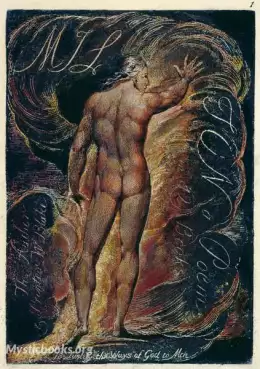
Milton: A Poem
Milton is an epic poem by William Blake, written and illustrated between 1804 and 1810. Its hero is John Milton, who returns from Heaven and unites with Blake to explore the relationship between living writers and their predecessors, and to undergo a...
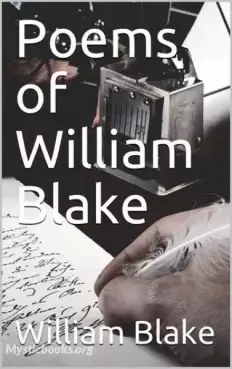
Poems of William Blake
Songs of Innocence and of Experience: Shewing the Two Contrary States of the Human Soul are two books of poetry by the English poet and painter, William Blake. Although Songs of Innocence was first published by itself in 1789, it is believed that Son...
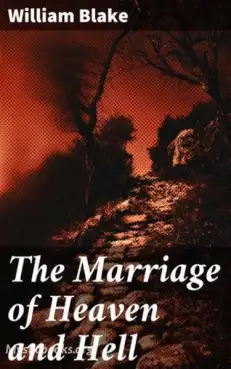
The Marriage of Heaven and Hell
The Marriage of Heaven and Hell is a book by the English poet and printmaker William Blake. It is a series of texts written in imitation of biblical prophecy but expressing Blake's own intensely personal Romantic and revolutionary beliefs. Like his o...
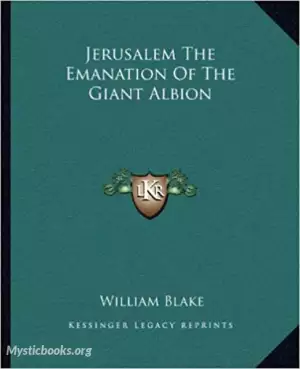
Jerusalem: The Emanation of the Giant Albion
Jerusalem, subtitled The Emanation of the Giant Albion (1804–1820, with additions made even later), is the last, longest and greatest in scope of the prophetic books written and illustrated by the English poet, artist and engraver William Blake. Etch...
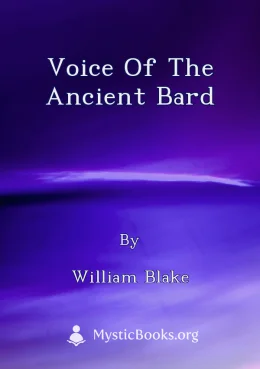
Voice of the Ancient Bard
LibriVox volunteers bring you six different readings of The Voice of the Ancient Bard, by William Blake. This is a weekly poetry project. (Summary by Annie Coleman)
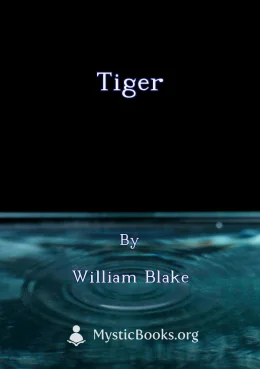
Tiger
LibriVox volunteers bring you twelve different recordings of The Tiger, by William Blake. This was the weekly poetry project for the week of December 3rd, 2006.
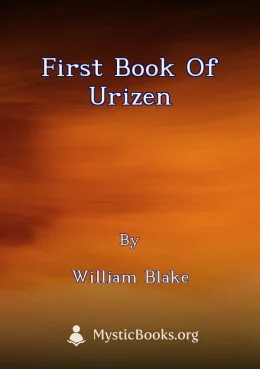
First Book of Urizen
The Book of Urizen is one of the major prophetic books of the English poet William Blake, illustrated by Blake's own plates. It was originally published as The First Book of Urizen in 1794. Later editions dropped the word "first". The book takes its...
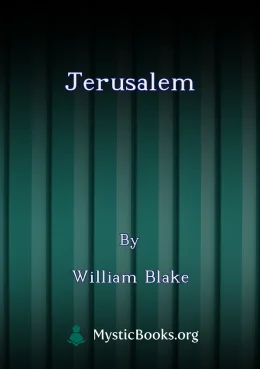
Jerusalem
Jerusalem: The Emanation of the Giant Albion is a complex and visionary prophetic poem by William Blake. Written in 1804 and 1818, it is considered one of his most important and challenging works. The poem explores themes of liberty, oppression, and...
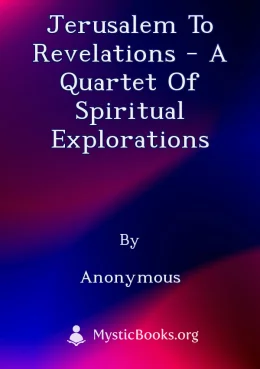
Jerusalem to Revelations - A Quartet of Spiritual Explorations
This book presents four distinct spiritual journeys, each offering a path to salvation and understanding the process of death and rebirth. It begins with the transformation of a land, followed by a soul's journey through death in the Egyptian Book...